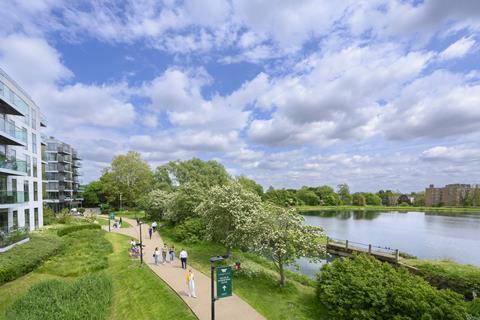Sector fears councils not prepared for expansion of rules
Mandatory biodiversity net gain (BNG) regulations came into force for small sites today (Tuesday).
The new planning rules, which have applied to major developments since February, require developers to submit BNG plans in order for applications to be approved.

Established by the Environment Act 2021, BNG rules were originally meant be rolled out last November but were postponed, first until January and subsequently by another month, after delays to secondary legislation.
Small housing sites are typically those with fewer than 10 homes on a site of less that 1 hectare.
Under the new rules, developers will need to prove their projects will boost biodiversity by at least 10% and maintain this for three decades or more, either on site, off site or a combination of the two.
They can combine these options by purchasing BNG credits from Natural England, although this has been described as a “last resort” by the government.
Before the rules came into force for large sites, the British Property Federation warned that planning departments were not yet ready to deal with the rules due to lack of resources, capacity and skills.
Angus Walker, partner at legal firm BDB Pitmans and former board chair of the National Infrastructure Planning Association, warned that many local authorities were still not ready.
“Despite two delays to the initial introduction of mandatory BNG, as we reach the second phase of BNG introduction many local authorities still don’t seem to fully understand the legislation or have a clear strategy for implementing it,” he said.
>>See also: Will the government’s biodiversity plans prove a net gain for the housebuilding sector?
“While this has not yet caused significant problems, the extension of the rules to cover even the smallest developers – those with fewer resources to meet a major new compliance burden – could well struggle.
“Councils will have to rapidly get to grips with BNG rules, or else find that development in their area comes to a halt.”
He said his own experience had “not been encouraging” with local authorities lacking a standard approach or asking for additional fees.
Walker added that the expansion of the rules to small sites would put unprepared councils to the test. “The sudden jump in BNG queries from smaller developers will show which local authorities have prepared adequately,” he said.
From November 2025, the policy will also apply to nationally significant infrastructure projects.
Walker said the government was “already falling behind on its timetable for this, having promised to consult on an NSIP-specific ‘biodiversity gain statement’ in March 2024”.


























No comments yet